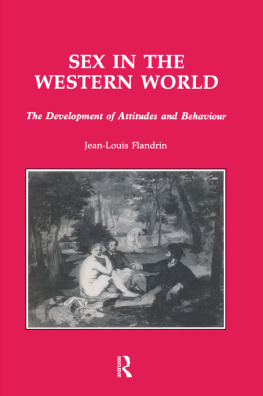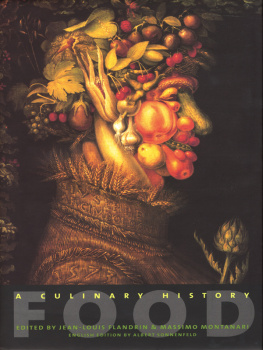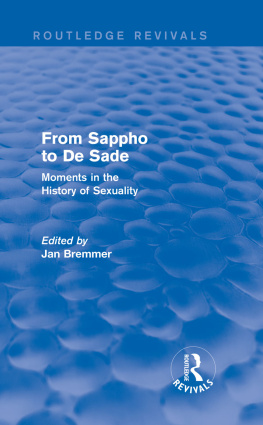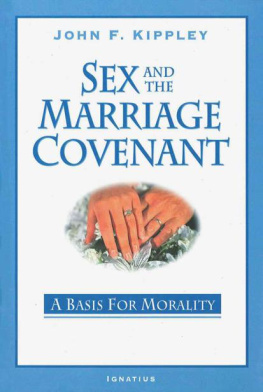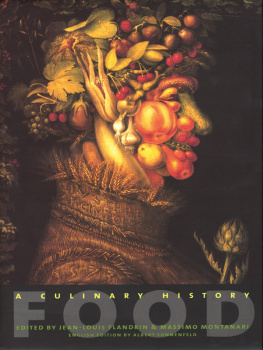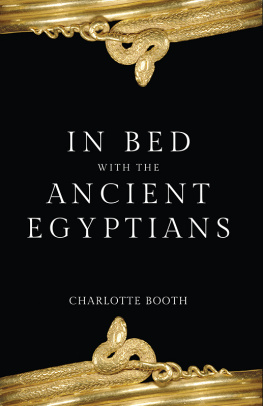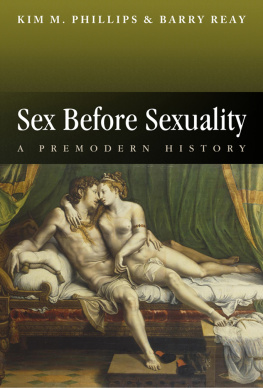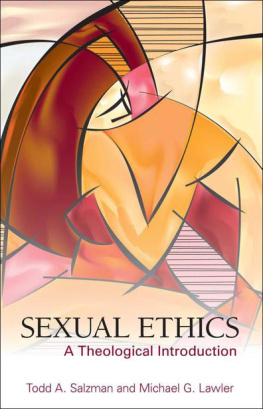Jean-Louis Flandrin - Sex In The Western World
Here you can read online Jean-Louis Flandrin - Sex In The Western World full text of the book (entire story) in english for free. Download pdf and epub, get meaning, cover and reviews about this ebook. year: 2019, publisher: Routledge, genre: Religion. Description of the work, (preface) as well as reviews are available. Best literature library LitArk.com created for fans of good reading and offers a wide selection of genres:
Romance novel
Science fiction
Adventure
Detective
Science
History
Home and family
Prose
Art
Politics
Computer
Non-fiction
Religion
Business
Children
Humor
Choose a favorite category and find really read worthwhile books. Enjoy immersion in the world of imagination, feel the emotions of the characters or learn something new for yourself, make an fascinating discovery.
- Book:Sex In The Western World
- Author:
- Publisher:Routledge
- Genre:
- Year:2019
- Rating:5 / 5
- Favourites:Add to favourites
- Your mark:
- 100
- 1
- 2
- 3
- 4
- 5
Sex In The Western World: summary, description and annotation
We offer to read an annotation, description, summary or preface (depends on what the author of the book "Sex In The Western World" wrote himself). If you haven't found the necessary information about the book — write in the comments, we will try to find it.
Sex In The Western World — read online for free the complete book (whole text) full work
Below is the text of the book, divided by pages. System saving the place of the last page read, allows you to conveniently read the book "Sex In The Western World" online for free, without having to search again every time where you left off. Put a bookmark, and you can go to the page where you finished reading at any time.
Font size:
Interval:
Bookmark:
Jean-Louis Flandrin
Ecole des Hautes Etudes en Sciences Sociales, Paris
Sue Collins
Services for Export and Language, University of Salford, Salford

2 Park Square, Milton Park, Abingdon, Oxon OX14 4RN
52 Vanderbilt Avenue, New York, NY 10017
Product or corporate names may be trademarks or registered trademarks, and are used only for identification and explanation without intent to infringe.
Flandrin, Jean Louis.
[Sexe et l'Occident. English]
Sex in the Western World: the development of attitudes and
behavior / Jean-Louis Flandrin: translated from the French by Sue
Collins.
p. cm.
Translation of: Sexe et l'Occident.
Includes bibliographical references (p. ) and index.
ISBN 3-7186-5201-3
1. Sexual ethicsEuropeHistory. 2. Sex customsEurope--History.
3. e. I. Title.
HQ31.F65413 1991
306.7'094dc20
- Chapter 1
Why Study the History of Sexuality? - Chapter 2
Civilisation and Feelings - Chapter 3
Love and Love Affairs in the Sixteenth Century - Chapter 4
The Crantailles Rite in Troyes between the Fifteenth and Seventeenth Centuries - Chapter 5
Love and Marriage in the Eighteenth Century
- Chapter 2
- Chapter 6
The Christian Doctrine of Marriage - Chapter 7
Contraception, Marriage, and Sexual Relations in the Christian West - Chapter 8
Man and Wife in the Marriage Bed
- Chapter 6
- Chapter 9
Childhood and Society - Chapter 10
Attitudes towards Young Children and Sexual Behaviour - Chapter 11
Ancient and Modern Adages Concerning the Child within the Family - Chapter 12
The Young Woman in Ancient French Proverbs
- Chapter 9
- Chapter 13
Late Marriages and Sex Lives - Chapter 14
Repression and Change in the Sex Lives of Young People - Chapter 15
Family Life and Illicit Love in England
- Chapter 13
- Chapter 1
Why Study the History of Sexuality? - Chapter 2
Civilisation and Feelings - Chapter 3
Love and Love Affairs in the Sixteenth Century - Chapter 4
The Crantailles Rite in Troyes between the Fifteenth and Seventeenth Centuries - Chapter 5
Love and Marriage in the Eighteenth Century
- Chapter 2
- Chapter 6
The Christian Doctrine of Marriage - Chapter 7
Contraception, Marriage, and Sexual Relations in the Christian West - Chapter 8
Man and Wife in the Marriage Bed
- Chapter 6
- Chapter 9
Childhood and Society - Chapter 10
Attitudes towards Young Children and Sexual Behaviour - Chapter 11
Ancient and Modern Adages Concerning the Child within the Family - Chapter 12
The Young Woman in Ancient French Proverbs
- Chapter 9
- Chapter 13
Late Marriages and Sex Lives - Chapter 14
Repression and Change in the Sex Lives of Young People - Chapter 15
Family Life and Illicit Love in England
- Chapter 13
Why Study the History of Sexuality?
Font size:
Interval:
Bookmark:
Similar books «Sex In The Western World»
Look at similar books to Sex In The Western World. We have selected literature similar in name and meaning in the hope of providing readers with more options to find new, interesting, not yet read works.
Discussion, reviews of the book Sex In The Western World and just readers' own opinions. Leave your comments, write what you think about the work, its meaning or the main characters. Specify what exactly you liked and what you didn't like, and why you think so.

